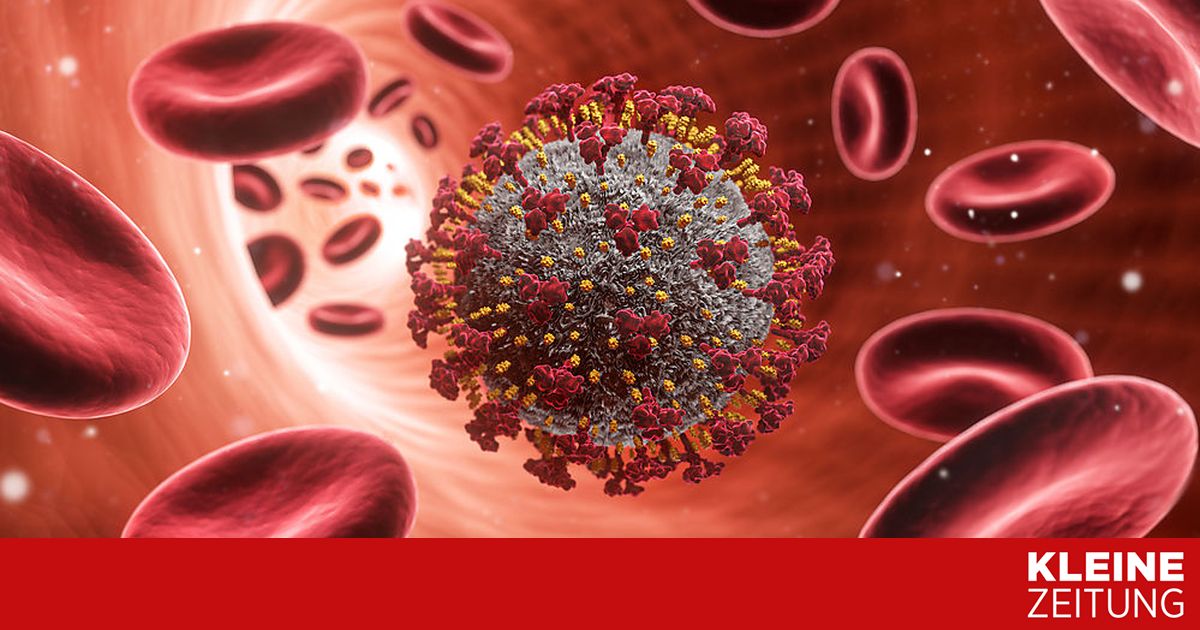Coronavirus: Against Covid-19: According to current studies, zinc, vitamin C or D are ineffective
The most diverse means in the fight against the coronavirus are at the center of the discussion: Among other things, the worming drug ivermectin, known from tropical medicine, but also the use of convalescent plasma is still controversial.
2:05 p.m., March 15, 2021
The search for ways of influencing the course of a SARS-CoV-2 infection or Covid-19 with drugs has brought a wide variety of means into discussion in the past year. Some important study data on this have been published in the past few days. One thing is certain: vitamin C and / or zinc or vitamin D do not help. It also looks bad for plasma from Covid-19 convalescents.
In laypersons, but also in some medical circles, the high-dose intake of zinc and / or vitamin C in SARS-CoV-2 infections has recently been discussed as a potential prophylactic against severe disease. In the case of vitamin C, this has repeatedly been the case for a wide variety of diseases over the past decades. Ascorbic acid is an antioxidant. Zinc is said to strengthen certain immune cells.However, a study by clinics in the Cleveland Group (Cleveland / Ohio and Weston / Florida) is likely to have put a stop to its use. It appeared in the Journal of the American Medical Association (JAMA). 214 SARS-CoV-2 infected people were admitted. Their average age was 45 years. In four groups of equal size, they received either 50 milligrams of zinc, eight grams of ascorbic acid, both or just the standard treatment without these agents for ten days.
No relevant difference made
No matter what the subjects got, the result was similar. No statistically relevant difference was found: Without any intervention, the Covid 19 symptoms improved by an average of 50 percent within 6.7 days. With vitamin C this was the case after 5.5 days, with zinc after 5.9 days and in the combination of the two substances again after 5.5 days, as the German Pharmazeutische Zeitung wrote a few days ago.
Quite similar results – no effect – were given by Brazilian doctors with a one-off High dose vitamin D administration registered in hospitalized Covid-19 patients with additional oxygen requirements. This study was also recently published in JAMA. 240 patients had either received 200,000 international units (IU) of vitamin D3 to swallow or a placebo. But it also showed that the administration of vitamins did not result in a shorter hospital stay, fewer admissions to an intensive care unit or a lower mortality.
“During this whole pandemic we have already seen how biological plausibility and data from observations often could not be translated into better treatment outcomes in studies with placebo control and random allocation of patients in comparison groups,” wrote the journal Watch online magazine of the New England Journal of Medicine Patricia Kritek by the American Society of Lung Specialists in a comment.
Blood plasma from convalescent
Up until a press conference in June last year, the so-called also came up in Austria Convalescent plasma: Blood plasma from Covid-19 convalescent. The antibodies against SARS-CoV-2 contained in it should help the seriously ill. Individual cases were presented as an example of the positive effect with Covid-19, and called for plasma donations. The principle of the convalescent plasma is ancient and has been used in the past for various infectious diseases.
However, science is currently speaking against a broadly demonstrable effect of convalescent plasma. Again in JAMA a meta-analysis of four published studies on how efficacy (publications with peer review) with 1060 patients appeared. In addition, there was the data from a further six as yet unpublished scientific studies with many thousands of people treated.
Conclusion: Between those who received the plasma in the first four published scientific studies and those who did not, there was only one insignificant statistical difference in mortality of seven percent. When evaluating the information from 10,722 patients with or without plasma treatment, the difference was two percent. There was also no effect with any of the other criteria for the course of Covid 19 disease, as Perrine Janiaud and her co-authors found.
Means from tropical medicine
The ancient parasite / worming agent Ivermectin is also currently under discussion. It has been used in tropical medicine for decades. It is particularly beneficial in reducing river blindness in Africa. In 2015 the discoverers were honored with the Nobel Prize for Medicine.
A possible effect of the substance against SARS-CoV-2 was already derived from laboratory tests in April last year. Since then, a heated discussion has raged from study to study as to whether or not such an effect has also been proven or can be proven beyond doubt in placebo-controlled studies.
A randomized and placebo-controlled study from Colombia with 400 Covid-19 patients (JAMA Network) showed the use of 300 micrograms ivermectin per kilogram of body weight daily for five days no significant effect. A disappearance of the symptoms of the disease within three weeks, with 82 percent taking ivermectin and 79 percent taking placebo, meant no significant difference.
Since this publication, the discussion about ivermectin has intensified again. It has been listed as a possible treatment option by the US Institutes of Health (NIH), albeit with the limitation of insufficient data for a final assessment. A meta-analysis of studies with the substance carried out by British scientists produced weak to moderate evidence of a positive effect in Covid-19 patients. But further scientific studies with hopefully convincing results are still pending.


